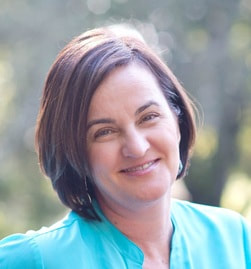
I used to think it was my caring duty as a mother to manage my family members. My expectations—of my children and my husband to do what I felt was best—caused resentment and conveyed disapproval though I didn’t see it at the time, so I continued on with my pattern of trying to get them to do what I thought they should.
I’d say things like, “You should take a jacket,” and “I want you to make a dentist appointment,” and “You need to start saving money so you can pay your rent.” Managing my family felt to me like loving them.
What got me to examine my behavior was the desperation that goes along with the disease of addiction. Mothering my son did not cause his addiction but his drug addiction did cause my mothering to go into overdrive. Try as I might, managing my son and his escalating problems did not help. What did help was learning to pay attention to my own behavior because then I was looking at my own options instead of the options of others.
When I said to my son, “You should go to a meeting,” or “You need to get back to treatment,” or “I want you to promise me you won’t use drugs,” I was telling him how he should find recovery. How does anyone really know what’s best for another? Driven by the stranglehold addiction had on him, my worry was leading me astray.
Gradually, my words--should, need to, and I want you to—began to sound unsupportive to my ears. So I tried hard to simply convey love and compassion, to stop telling him what to do, and to hold back from doing for him what he could do for himself. That’s challenging when you’re worried sick. It would’ve been far easier if decades ago I’d truly internalized that his life is not mine to live.
But I didn’t.
Fast forward to the hopeful part: I’m finding that all my relationships dramatically improve when I work on staying in my lane. The other day while driving, I noticed those are my hands on the wheel. I can choose to scream at the crazy driver ahead (who can’t hear me anyway) or take action myself: slow down, speed up, move over, or exit. Issuing a steady stream of instructions at that driver (or my son) won’t change him. Change has to come from me.
I’m the only one who can bring about my own peace.
I’d say things like, “You should take a jacket,” and “I want you to make a dentist appointment,” and “You need to start saving money so you can pay your rent.” Managing my family felt to me like loving them.
What got me to examine my behavior was the desperation that goes along with the disease of addiction. Mothering my son did not cause his addiction but his drug addiction did cause my mothering to go into overdrive. Try as I might, managing my son and his escalating problems did not help. What did help was learning to pay attention to my own behavior because then I was looking at my own options instead of the options of others.
When I said to my son, “You should go to a meeting,” or “You need to get back to treatment,” or “I want you to promise me you won’t use drugs,” I was telling him how he should find recovery. How does anyone really know what’s best for another? Driven by the stranglehold addiction had on him, my worry was leading me astray.
Gradually, my words--should, need to, and I want you to—began to sound unsupportive to my ears. So I tried hard to simply convey love and compassion, to stop telling him what to do, and to hold back from doing for him what he could do for himself. That’s challenging when you’re worried sick. It would’ve been far easier if decades ago I’d truly internalized that his life is not mine to live.
But I didn’t.
Fast forward to the hopeful part: I’m finding that all my relationships dramatically improve when I work on staying in my lane. The other day while driving, I noticed those are my hands on the wheel. I can choose to scream at the crazy driver ahead (who can’t hear me anyway) or take action myself: slow down, speed up, move over, or exit. Issuing a steady stream of instructions at that driver (or my son) won’t change him. Change has to come from me.
I’m the only one who can bring about my own peace.

 RSS Feed
RSS Feed